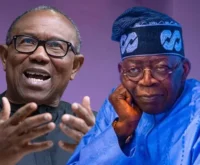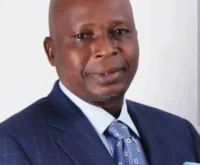The history of Ghana is rich and diverse, stretching back thousands of years. Here’s an overview of its key historical periods:
- Pre-Colonial Era: The region that is now Ghana has been inhabited for millennia. Ancient civilizations such as the Ghana Empire (not to be confused with the modern state of Ghana) and the Ashanti Empire emerged in the area. These societies engaged in trade, agriculture, and had complex political systems.
- European Contact: European exploration of the West African coast began in the 15th century. The Portuguese were the first Europeans to establish contact with the region in the late 15th century. They were followed by other European powers such as the Dutch, British, and Danish, who established trading posts and forts along the coast.
- Transatlantic Slave Trade: Ghana’s coast was a major hub for the transatlantic slave trade, with European traders capturing and transporting millions of Africans to the Americas as slaves. This period had a profound impact on the demographics and societies of the region.
- Colonial Period: The coastal areas of present-day Ghana came under British control in the late 19th century. The British gradually expanded their influence inland, encountering resistance from indigenous peoples such as the Ashanti. In 1901, the British formally declared the region a colony, which they called the Gold Coast.
- Independence Movement: The struggle for independence from British colonial rule gained momentum after World War II. Led by figures like Kwame Nkrumah, the independence movement grew in strength, culminating in Ghana becoming the first sub-Saharan African country to gain independence on March 6, 1957. Kwame Nkrumah became Ghana’s first Prime Minister and later its first President.
- Post-Independence Challenges: After gaining independence, Ghana faced numerous challenges, including political instability, economic difficulties, and social unrest. Nkrumah’s government pursued socialist policies and faced criticism for authoritarianism and corruption. In 1966, Nkrumah was overthrown in a military coup.
- Subsequent Governments: Ghana experienced periods of military rule interspersed with civilian governments in the latter half of the 20th century. The country underwent economic reforms and liberalization in the 1980s and 1990s, transitioning towards a market-based economy.
- Recent Developments: Since the early 2000s, Ghana has seen relative stability and economic growth. It has held several successful democratic elections and undergone infrastructural development. The country remains a significant player in regional politics and economics in West Africa.
Throughout its history, Ghana has been shaped by its diverse cultures, interactions with external powers, and struggles for independence and self-determination. Today, it continues to evolve as a nation striving for progress and development.

 Bauchi Governor Sacks Security Adviser, Ahmed Chiroma
Bauchi Governor Sacks Security Adviser, Ahmed Chiroma  Bloodshed in Kashmir: Soldiers Fall in Line of Duty
Bloodshed in Kashmir: Soldiers Fall in Line of Duty  Kill 3,Bandits Attack Zurmi Emir’s Palace.
Kill 3,Bandits Attack Zurmi Emir’s Palace.  Tinubu’s decision not to pay ransom to the kidnappers
Tinubu’s decision not to pay ransom to the kidnappers  Don’t Obstruct EFCC From Performing Its Duty, Justice Minister Warns Politicians
Don’t Obstruct EFCC From Performing Its Duty, Justice Minister Warns Politicians  Anti-Graft Agency EFCC Barricades Ex-Governor Yahaya Bello’s
Anti-Graft Agency EFCC Barricades Ex-Governor Yahaya Bello’s